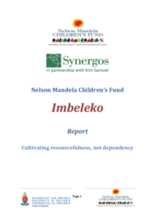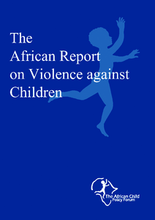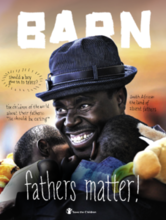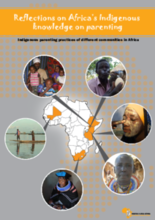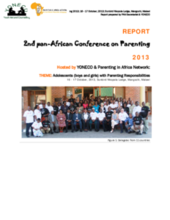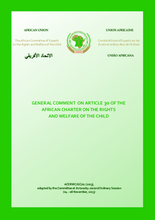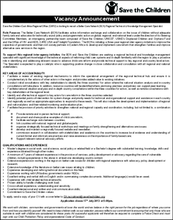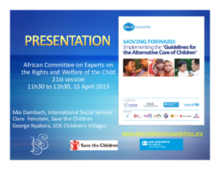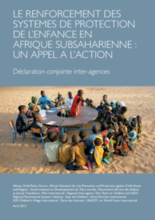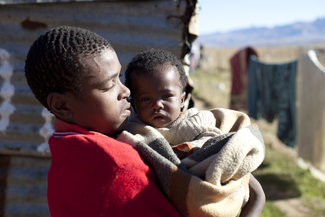

Displaying 401 - 410 of 576
The purpose of the ‘Imbeleko and social connectedness’ project was to conduct a cross-sectional study in order to explore and describe indigenous ways of care and support to inform policy and intervention.
This report, from the African Child Policy Forum, is aimed at informing and accelerating pan-African, regional and national efforts to prevent and respond to violence against children.
Barn is a magazine about children’s rights published by Save the Children Sweden with four issues per year. This issue is focused on the role of fathers in children’s wellbeing and development.
This publication, produced by the Parenting in Africa Network (PAN), highlights the skillful parenting practices of several pastoral communities in Africa.
This report summarises the presentations and conclusions from the 2nd Pan-African annual conference on parenting held on the 16-17th October 2013 in Malawi on the theme of "Understanding realities of teenage parenting: a special focus on adolescents (boys and girls) with parenting responsibilities."
The African Committee of Experts on the Rights and Welfare of the Child (ACERWC) held its twenty-second Ordinary Session from 4-8 November 2013 and issued its first General Comment on the African Charter regarding the rights and welfare of children of incarcerated and imprisoned parents and primary caregivers.
Save the Children East Africa Regional Office (EARO) and Better Care Network (BCN) are looking to recruit a Better Care Network (BCN) Regional Technical & Knowledge Management Specialist.
PAN has translated its materials into Portuguese, French, and Kiswahili.
Representatives from International Social Service, Save the Children, and SOS Children’s Villages met with the African Committee on Experts on the Rights and Welfare of the Child during its 21st session on 15 April, 2013 to present on the international Guidelines for the Alternative Care of Children (UNGA resolution A/RES/64/142) and its new implementation Handbook “Moving Forward.”
Cette déclaration conjointe inter-agences a pour but de (i) de présenter une vision commune des systèmes de protection de l’enfance en Afrique subsaharienne et d’expliquer pourquoi ils sont importants et méritent des investissements et (ii) lancer un appel à l’action auprès des gouvernements, à l’Union africaine, aux communautés économiques régionales, aux institutions multilatérales, aux bailleurs de fonds, au secteur privé, aux institutions académiques, aux organisations de la société civile, aux communautés et aux groupes d’enfants et de jeunes organisés.

